JAJSHW4 September 2019 LM74202-Q1
PRODUCTION DATA.
- 1 特長
- 2 アプリケーション
- 3 概要
- 4 改訂履歴
- 5 Pin Configuration and Functions
- 6 Specifications
- 7 Parameter Measurement Information
-
8 Detailed Description
- 8.1 Overview
- 8.2 Functional Block Diagram
- 8.3
Feature Description
- 8.3.1 Undervoltage Lockout (UVLO)
- 8.3.2 Overvoltage Protection (OVP)
- 8.3.3 Reverse Battery Protection
- 8.3.4 Hot Plug-In and In-Rush Current Control
- 8.3.5 Overload and Short Circuit Protection
- 8.4 Device Functional Modes
-
9 Application and Implementation
- 9.1 Application Information
- 9.2
Typical Application
- 9.2.1 Design Requirements
- 9.2.2 Detailed Design Procedure
- 9.2.3 Application Curves
- 10Power Supply Recommendations
- 11Layout
- 12デバイスおよびドキュメントのサポート
- 13メカニカル、パッケージ、および注文情報
6.6 Typical Characteristics
TA = 25 °C, V(IN) = 12 V, V(SHDN)= 2 V, R(ILIM) = 120 kΩ, IMON = FLT = OPEN, C(IN) = 0.1 μF, C(OUT) = 1 μF, C(dVdT) = OPEN. (Unless otherwise noted)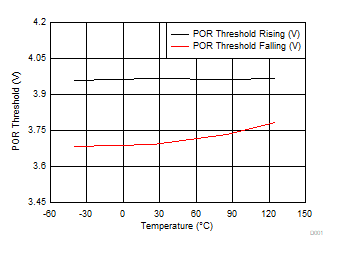
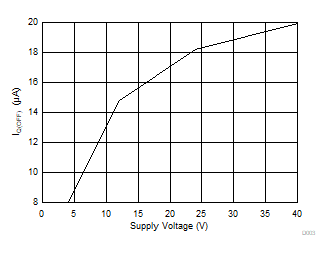 Figure 3. Supply Current OFF (IQOFF) vs Supply Voltage (VIN)
Figure 3. Supply Current OFF (IQOFF) vs Supply Voltage (VIN) 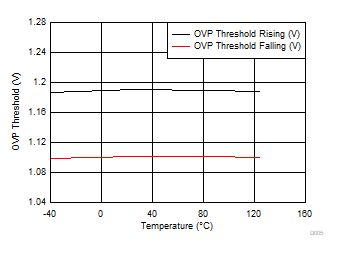
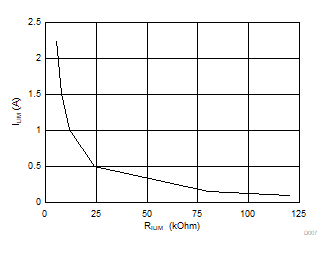
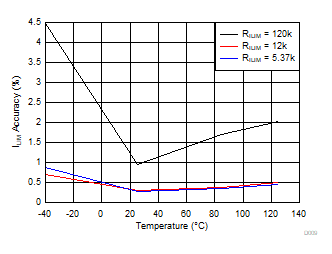
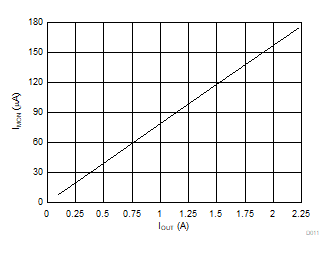
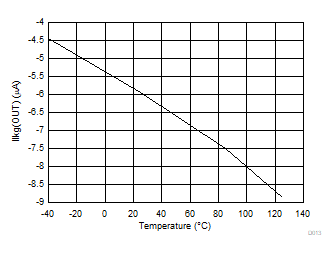
| V(OUT) = 24 V | V(IN) = 0 V | VSHDN = 0 V |
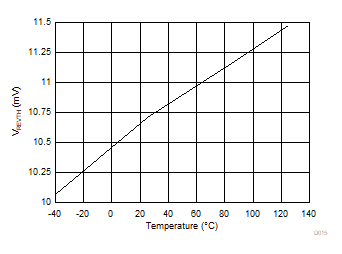
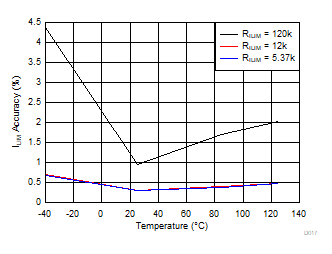
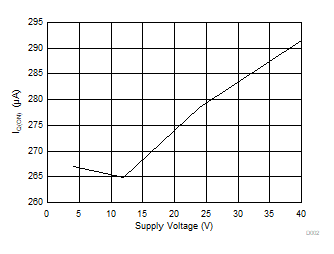 Figure 2. Supply Current ON (IQON) vs Supply Voltage (VIN)
Figure 2. Supply Current ON (IQON) vs Supply Voltage (VIN) 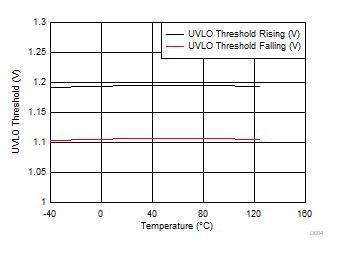
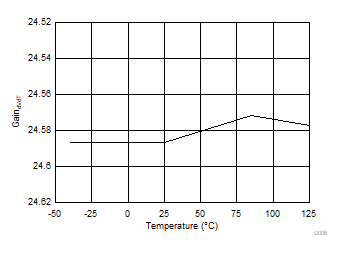
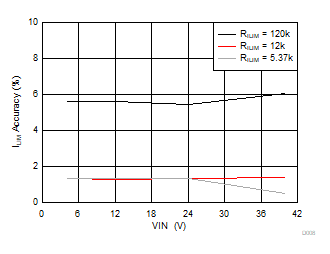
| TA = -40 to 125 °C |
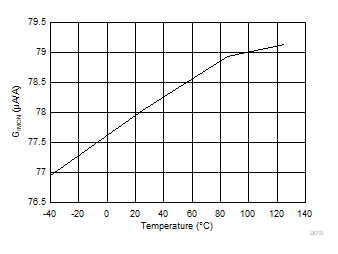
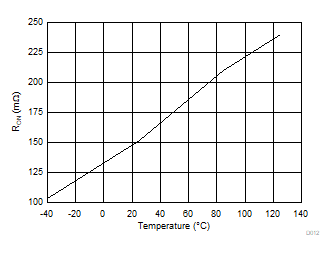
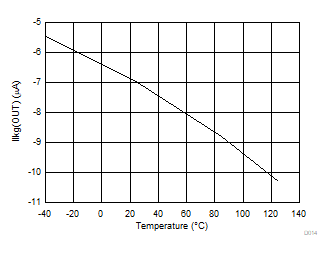
| V(OUT) = 0 V | V(IN) = –24 V | VSHDN = 0 V |
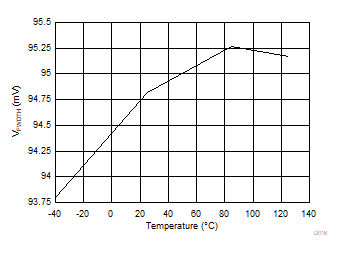
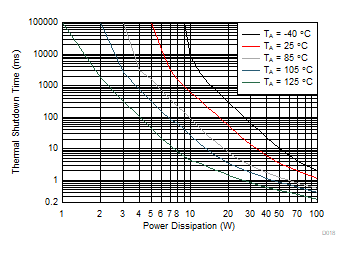
Taken on 2-layer PCB with 0.07-mm thick copper and copper area of 10.5 cm2 connected to PowerPAD.
Figure 18. Thermal Shutdown Time vs Power Dissipation